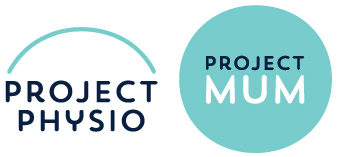This is my summary of the top 10 key points from all of the episodes and experts that featured during 2019 on “The Physical Performance Show” podcast for any endurance athlete. I personally try to follow as many of these as possible (apart from the sleep ones haha!!) and highly encourage anyone who is looking to improve performance or reduce injury risk to do the same.
1. The 80/20 rule applies to everyone! 80% of training should be “easy” and 20% should be “hard”. This ratio should be the same if you train 3 hours a week or 20 hours a week. The hard training should be really hard and the easy training should be really easy to allow you to work hard in those hard sessions. Dr Stephen Seiler
2. Overload injuries can be due to under loading! Most injuries in endurance athletes occur from doing too much to soon (overload). But this is due to the tissues in the body not having the capacity to tolerate the load (under loaded). Having a higher chronic work load protects us against any spike in load (for example a race) and protects us against injury. So it is actually necessary to train harder and smarter, but you need time to build up to this harder load . Dr Tim Gabbett
3. Never try anything new on race day! Practice your nutrition in training and replicate the pre, during and post race day nutrition. This is the same principle as training, which improves fitness, strength etc. Andrew Hall
4. Embrace the suck! Sometimes training is hard, but if you have to do it anyway, find a way to make it more palatable. When you embrace or are grateful for an experience, then it has a positive impact upon your performance. Dr Jo Lukins
5. Strength training is vital! Strength training has been shown to improve running economy, reduce injury risk, improve top end speed and, most importantly, improve performance in a time trial. Strength training for an endurance athlete will give you these benefits but will not make you bulk up. Richard Blagrove
6. Which training shoes to use! Do not make big changes in shoes unless you are prepared to do a slow weaning in period, or will drop your volume of training before building up again. Choose the lightest shoes you can find to suit you. But most importantly, comfort is the number one point when choosing a shoe. Dr Paul Griffin & Simon Bartold
7. Sleep is key! Replace the phrase “rise and grind” with “sleep in and win”. Sleep is by far our greatest recovery tool and is shown to be much more effective than any other recovery method, so prioritize it! Dr David Cunnington
8. Put down your watch and listen to your body! Mood and how you feel is the best indicator of how recovered you are. Mood has been shown to be a better predictor of recovery than any information your watch or power meter can give you. Christie Aschwanden
9. Fatigue and sleepiness are not the same thing! Big training blocks will make you fatigued, but rather than aid your sleep they often do the opposite and make it harder to sleep. When you train you put stress on your body, but your body cannot differentiate this from other life stresses (work, family, kids etc) so be mindful that your body can only cope with a certain amount of stress, and modify things as able. Dr Shona Halsan
10. Get fluid in during a race! Try pinching the top of a plastic cup from the aid station in order to siphon it in more effectively. Little sips rather than big gulps stop you ingesting too much air and will help your stomach feel better. Trent Stellingwerff
